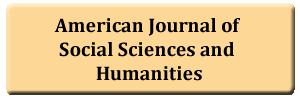Factors affecting perceptions of learning among Jordanian university students during emergency distance learning
DOI:
https://doi.org/10.55284/ajel.v9i2.1170Keywords:
COVID-19 pandemic, Deep learning, Emergency distance learning EDL, Factors, Higher education, Learning perception.Abstract
This quantitative and correlational study aimed to explore factors affecting the perception of learning among Jordanian university students during Emergency Distance Learning (EDL) situations. We conducted the electronic survey on a voluntary sample of 765 male and female students from various public and private universities in Jordan, accredited by the Ministry of Higher Education, across various levels and geographical distributions for both genders. We applied the study questionnaire to numerous factors associated with perceived learning. We conducted an analysis of the data, extracted the values of various correlation indicators, compared the means, and analyzed linear regression using v 26 SPSS software. Our findings revealed that economics students had a more positive perception of learning compared to education and science students. They also demonstrated a preference for deep learning, avoiding superficial learning factors, and expressed great appreciation for their teachers' empathy and the opportunities to participate in classroom activities. Science students received the lowest ratings for perceived learning as well as almost all other factors. However, the most crucial suggestion is to advance in assessing scholastic competencies, understudies' abilities, student-student and teacher-student relationships, and curriculum materials that foster exceptional learning.



